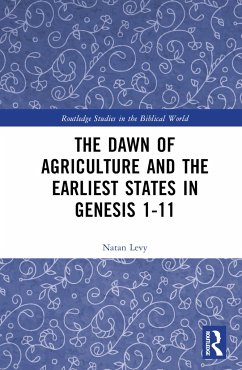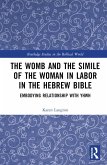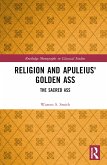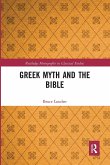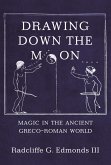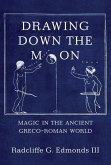This book invites a close textual encounter with the first 11 chapters of Genesis as an intimate drama of marginalised peoples wrestling with the rise of the world's first grain states in the Mesopotamian alluvium.
The initial 11 chapters of Genesis are often considered discordant and fragmentary, despite being a story of beginnings within the context of the Bible. Readers discover how these formative chapters cohere as a cross-generational account of peoples grappling with the hegemonic spread of domesticated grain production and the concomitant rise of the pristine states of Mesopotamia. The book reveals how key episodes from the Genesis narrative reflect major societal revolutions of the Neolithic period in Mesopotamia through a three-fold hermeneutical method: literary analysis of the Bible and contemporary cuneiform texts; modern scholarship from archaeological, anthropological, ecological, and historical sources; and relevant exegesis from the Second Temple and rabbinical era. These three strands entwine to recount a generally sequential story of the earliest archaic states as narrated by non-elites at the margins of these emerging state spaces.
The Dawn of Agriculture and the Earliest States in Genesis 1-11 provides a fascinating reading of the first 11 chapters of Genesis, appealing to students and scholars of the Hebrew Bible and the Near East, as well as those working on ecological injustice from a religious vantage point.
The initial 11 chapters of Genesis are often considered discordant and fragmentary, despite being a story of beginnings within the context of the Bible. Readers discover how these formative chapters cohere as a cross-generational account of peoples grappling with the hegemonic spread of domesticated grain production and the concomitant rise of the pristine states of Mesopotamia. The book reveals how key episodes from the Genesis narrative reflect major societal revolutions of the Neolithic period in Mesopotamia through a three-fold hermeneutical method: literary analysis of the Bible and contemporary cuneiform texts; modern scholarship from archaeological, anthropological, ecological, and historical sources; and relevant exegesis from the Second Temple and rabbinical era. These three strands entwine to recount a generally sequential story of the earliest archaic states as narrated by non-elites at the margins of these emerging state spaces.
The Dawn of Agriculture and the Earliest States in Genesis 1-11 provides a fascinating reading of the first 11 chapters of Genesis, appealing to students and scholars of the Hebrew Bible and the Near East, as well as those working on ecological injustice from a religious vantage point.
"Levy combines scholarship in several disciplines, close reading of one of the world's most influential texts, and a hermeneutical wisdom that brilliantly illuminates the relevance of that text to the twenty-first century. The result is both convincing and original-not least in the illumination given by ancient history, archaeology, and rabbinic midrashic interpretation. This is Genesis for our time, relating not only to challenges such as environmental emergency, global inequality, mass migration, and widespread state coercion, but also to the need for deep spiritual and ethical resources in responding to them." - David F. Ford OBE, Regius Professor of Divinity Emeritus, University of Cambridge

